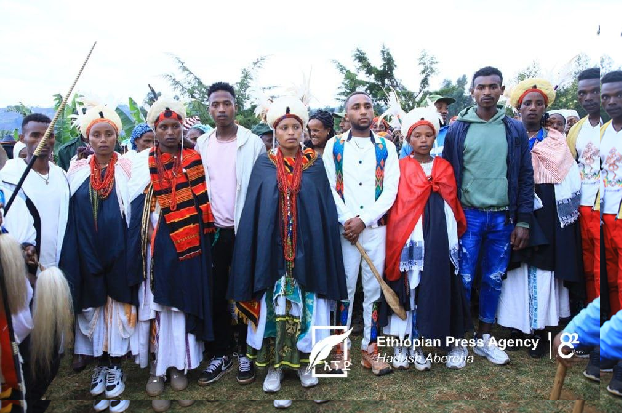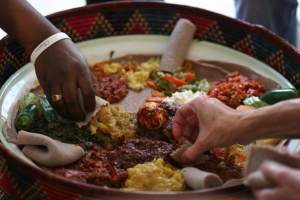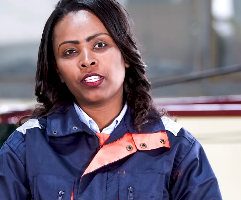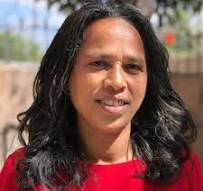
Marriage in the rural areas of Ethiopia had its own unique style and approach across areas. Though there are some similarities in its basic necessities, the application is quite different. As per the cultures of the given nation, dancing, singing, serving delicious and excessive foods in the ceremonies is almost the same across cultures. After the marriage has been done before the masses, there is a special cultural setting portrayed in the Gamo zone.
In Gamo culture, marriage can be done in two ways. The first one is the man could choose a woman and sends elders to her family for marriage proposals. The family of the woman could not say okay with the first, second and even third trial. The elders said, “With the two arrivals the family of the woman did show a sign that signals their willingness. For example at the elders’ third time arrival the family could invite them to sit and have something to eat. Then the elders understand that they are in a way to agree. After some more visits they express their inclination. The wedding day will be fixed and preparations could start ahead.
The other type of marriage in the area is made with the alertness of the woman to be abducted by her lover or without her consent that is done by force full one. If the couples agreed to live together in marriage then they agree and arrange for the abduction to be made by the man and his friends. In such situations the family and the tribe of the woman are expected to let her free with every possibility. Otherwise they are going to be inferred as weak and powerless in the eyes of the people around them. Thus they did everything to bring back the woman. The move to it is going to be accepted if they are able to find her before she sleeps with the man. But if she already did it, they will not attempt to bring her. The next step the man could follow is he could send elders to her family. Whether the family likes it or not, if she has already gone there, the marriage is arranged.
In Gamo Zone, most of the time marriage which could be either the above mentioned ones is made preferably since April. This is deliberately done to make it hot at Meskel holiday. As the contacted elders said the newly married couples are going to be recognized and get approval of the community when they are taken out to the meeting place called Dubusha. In the culture of Gamo, when the woman gets married, she is taken into the house of the man’s family. There she is going to be adored, cared for and kept well by the family of the man. She is not expected and allowed to work in the kitchen. She simply cared sitting in bed. The mother and sisters of the groom are going to be responsible for the bride. As per the words of the elders and scholars in the culture, the mother of the groom especially is not expected to see the bride while she is eating food. She only prepares delicious foods and serves them without noticing the bride back. This care is going to be done till the program is called Sophie.
Since the well-kept bride is easily identified by the grace, beauty and weight of her body, the families of the men who are responsible for caring for the women as a bride in their home are going to compete on the day. That means if the bride had good weight and beauty it is believed that the woman is cared for well by this family. Thus the praise and respect of this woman did mean the same to the family of her husband. This approval is made on the 16th day of September at Dubusha. This beauty and care contest is called Sophie. That is the family that was keeping this woman is going to be thanked and respected by the community that is going to be gathered at the Sophie program.
Kawo Tadesse especially told The Ethiopian Herald that one of the most interesting cultures that decorated the Damera bonfire lighting program is Sophie. New couples who get married in the year are displayed at the Dubusha. When the couples get out from their house, there is a cultural dressing style. Since they are going to be judged in the eyes of thousands, they wear the most valued cultural dress and Buluko, a woven cultural garment made on the dress. The women added a cultural skin as a coat. They beautify themselves with various attractive and precious ornaments. They decor their neck with Chele (beads) and necklaces. Very unique and attractive cultural brochettes are also used to make the women very pretty. Regarding their hair there is a very special culture here. The women are getting to swab with the high amount of butter on their head. The amount is going to be very high to show the woman was kept very well and the families that have been taking care of her are very wealthy and generous.
This program will be celebrated following the oxen slaughtering program that was done at Dorzie. The Derles or specific administrative tribes or culturally assigned regions of each Deres orchestrate Sophie at their Dubusha.
Since the time is already known by the community, everyone in the area gather to select the well-cared woman from the collected ones. For this program, newcomers from different areas including Addis Ababa and even tourists gather to watch all the practices. Couples stepped up on the lofted area at the Dubusha. On top of their hair the women leveled a higher amount of better which was circled by the leaf of the ostrich. The recognition and competition of these girls is also made by the amount of the leaf they put on their head. They simply stand in front of the gathering. The people start critically examining them with their thing and body appearance.
The one who had a higher amount of butter and many ostrich leaves on her head is going to pass one requirement. But the whole couples that are ousted over there are going to be recognized as married on that day though they get married some months earlier than the program. It is only at this setting that they get publicly recognized by the community. Then the winner of this competition is going to get the blessings and adoration of the elders. The family that took care of her is also mentioned as the best family in the community.
Kawo Tadesse had replied that if the couples already had a baby, they are not expected to come to Sophie. They are already recognized. That is why to bring them to this event; couples are expected to get married in April; so that they could not give birth till Meskel.
BY MEKDES TAYE (PhD)
THE ETHIOPIAN HERALD THURSDAY 17 OCTOBER 2024





